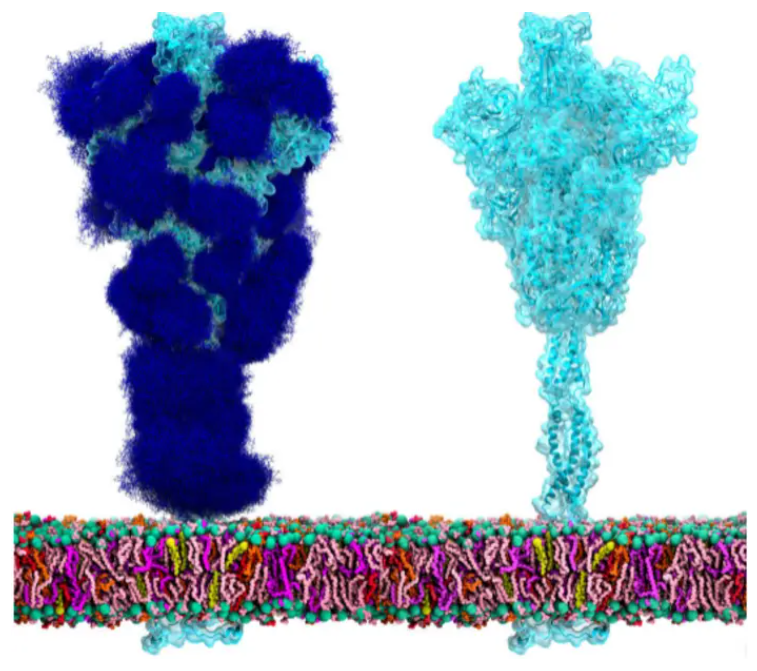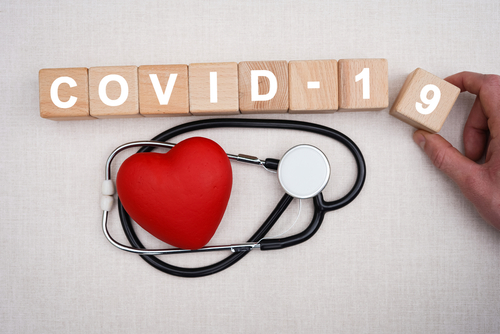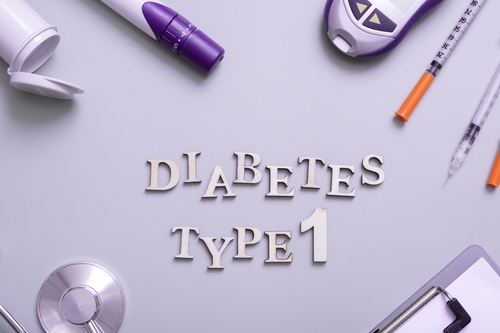
A study shows that about one in ten hospitalized patients with SARS-CoV-2 (COVID-19) have atrial fibrillation (AFib), and these patients suffer more comorbidities and twice the risk of mortality. The findings were published in Medicina Clinica.
This retrospective observational study consisted of 517 patients older than 15 years of age, who were all at hospital between March 10, 2020 and April 15, 2020, with definitive diagnosis COVID-19. The researchers assessed a total of 210 variables per patient, including clinical history, temperature, blood pressure, symptoms, laboratory findings, ECG findings, chest imaging results, and events, which were collated from electronic medical records. To meet inclusion criteria, all patients were required to have undergone at least one electrocardiogram at admission. Laboratory parameters that were assessed comprised of complete blood count, coagulation testing including D-dimer, iron metabolism including ferritine, electrolytes, assessment of liver and renal function, C-reactive protein, lactate dehydrogenase, procalcitonin and creatine kinase.
The patients were considered feverish with a temperature was over 99.5 F, and respiratory failure was defined as pO2 less than 60 mmHg in arterial gasometry or O2 saturation measured with pulse oximetry of less than 90% breathing room air. The data were analyzed using such statistical methods and tools as the Kolmogorov–Smirnov, the chi-squared test and Fisher’s exact test, logistic regression modeling, and R software.
AFib Dangerous in COVID Patients
According to the results, 10.4% of patients developed AFib, and these patients were older (81.6 vs 66.5 years old, p < 0.001) and presented more hypertension (74% vs 47%, p < 0.001), cardiomyopathy (9% vs 1%, p = 0.002), previous heart failure admission (9% vs 0.4%, p < 0.001), previous episodes of AF (83% vs 1%, p < 0.001) and bigger left atrium (47.8 vs 39.9 mm, p < 0.001).
Alarmingly, the results showed that COVID-19 patients with AFib presented more acute respiratory failure (72% vs 40%, p < 0.001) and higher in-hospital mortality (50% vs 22%, p < 0.001). The main predictors of AFib development were advanced age and previous AF. The researchers noted that AFib is not an independent predictor of in-hospital mortality.
In terms of limitations, because the study only included hospitalized patients, the conclusions cannot be assumed for outpatients. Moreover, echocardiogram was not included in the protocol, and the researchers only had data on a few patients who underwent echo performed prior to admission.
“As already mentioned, it is possible that due to extremely high contagious rate of disease, electrocardiograms have been minimized to avoid contacts, conducting to a reduction in AF detection,” the researchers wrote. “We tried to use AliveCor Kardia monitor to improve arrythmia detection but continuous monitorization was not routinely performed in our centre, and to be honest, the retrospective character of our work prevented having the information. It is probable that some patients could have developed asymptomatic paroxysmal AF, only detected with monitorization.”
Atrial fibrillation in patients with SARS-CoV-2 infection https://t.co/7CKeBHksyc pic.twitter.com/wu8SeGyLnG
— Debbe McCall (@DebbeMcCall) March 1, 2021
Atrial Fibrillation is an Independent Predictor for In-hospital Mortality in Patients Admitted with SARS-CoV-2 Infection, by @Hisbundle and colleagues https://t.co/hXjWQFOzwc
— HeartRhythm (@hrs_journal) February 6, 2021
“Atrial fibrillation appears in 10% of hospitalized patients with SARS-CoV-2 infection,” wrote the authors. “These patients present more comorbidities and a two-fold increase in hospital mortality. Atrial fibrillation is not an independent prognostic factor.”
Atrial fibrillation in patients with SARS-CoV-2 infection https://t.co/FpepHXUL5j pic.twitter.com/EzUvd6dEdo
— Medicina Clínica (@MedClinBarc) February 24, 2021







 © 2025 Mashup Media, LLC, a Formedics Property. All Rights Reserved.
© 2025 Mashup Media, LLC, a Formedics Property. All Rights Reserved.